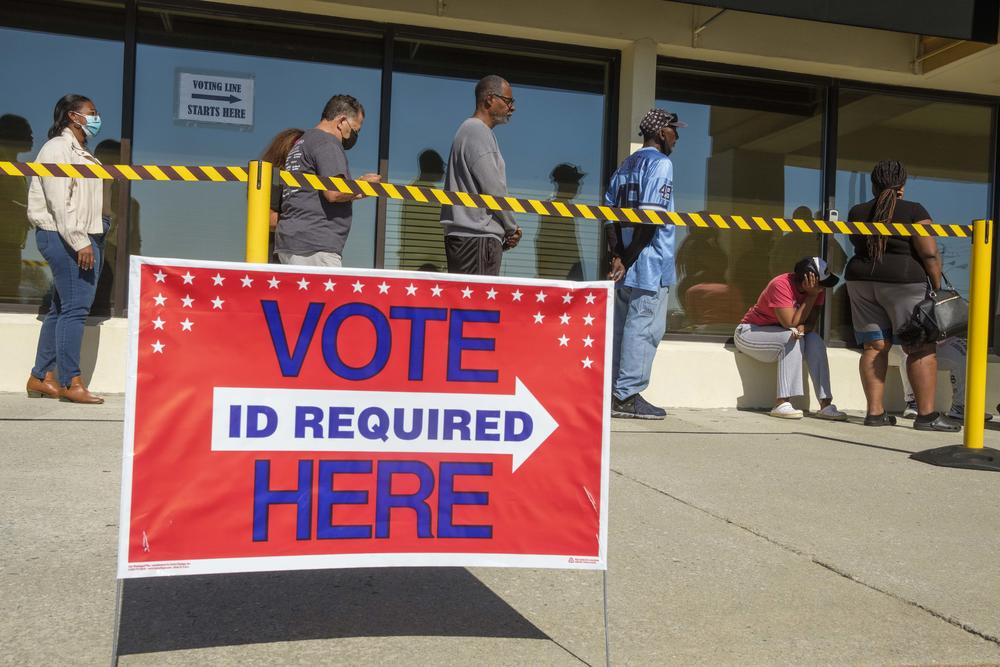
Caption
The line to vote at the board of elections in Macon, Ga., stretched around the corner from the front door and into a half hour wait by around 1 p.m. on the final day of early voting in November 2022.
Credit: Grant Blankenship / GPB News

